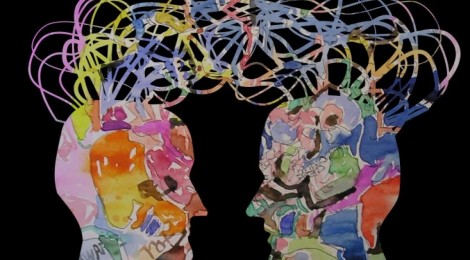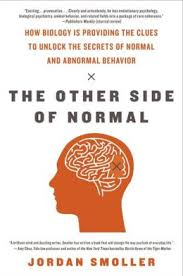
“Love Hormone” Oxytocin Linked to Domestic Violence
For years the scientific study of relationships has centered on the hormone oxytocin. Made in our brains and traveling through our blood, oxytocin is said to be the physiological glue that brings humans together. It makes us trust and become attached to one another.
During childbirth, oxytocin is released in large amounts to help facilitate uterine contractions, to encourage milk production during lactation, and to enhance maternal-child bonding. The hormone can also offer relief for chronic pain sufferers and is released during sexual intimacy, connecting us emotionally to our partners.
Oxytocin is known for its ability to strengthen social bonds. But as hormones are complex, surprising new research points to a potentially dangerous side of oxytocin: High levels may be associated with relationship violence.
Because of oxytocin’s associations to social behaviour, researchers have studied the use of oxytocin to treat interpersonal symptoms of autism spectrum disorder (ASD) and personality disorders. In 2003, Eric Hollander, psychiatry professor at the Albert Einstein College of Medicine, showed abnormal oxytocin levels in people with ASD. When he administered oxytocin to them, it improved speech comprehension and recognition of emotions, important factors for establishing relationships.
Paul Zak, economist at Claremont Graduate University, says that oxytocin is responsible for behaviours like empathy, cooperation, and trust. In one study, he tempted participants with money, and found that those who inhaled oxytocin, compared to a control group, were more willing to give their money to a stranger. That is, those in the experimental group were more trusting.
Since oxytocin is naturally released during intimate moments, Zak prescribes eight hugs a day to make us happier and warmer people. But as with all medical science, oxytocin is complicated. And its catchy nicknames may be misleading.
Recent research by psychologist Nathan DeWall at the University of Kentucky and his colleagues demonstrated that oxytocin may be a factor in abusive relationships, if the abusive individual is already an aggressive person.
DeWall initially measured the underlying aggressive tendencies of male and female undergraduates. Participants were randomly split into two groups and unknowingly inhaled oxytocin or a placebo spray.
DeWall then created stressful situations that are known to elicit aggression. He asked the subjects to give a public speech to an unsupportive audience, and later experience the uncomfortable pain of an ice-cold bandage placed on their forehead.
Individuals then rated how likely they would be to engage in specific violent acts toward their current or most recent romantic partner; for example, to “throw something at [their] partner that could hurt.”
Oxytocin increased inclinations toward intimate partner violence (IPV), but only in participants who were prone to physical aggression.
Similarly, a study by Jennifer Bartz, a psychiatry professor at the Mount Sinai School of Medicine in New York, shows that oxytocin hinders trust and cooperation in persons with borderline personality disorder, which is characterized by pervasive instability in moods, behaviours, and interpersonal relationships.
Notably, DeWall’s experiment took place in a laboratory setting, and it’s an open question as to whether this finding is generalizable to actual violent behaviour in domestic relationships.
DeWall explains that oxytocin is linked to maintaining relationships by keeping the ones we love close. For those with aggressive tendencies, preserving a relationship can mean controlling or dominating the partner with physical and emotional abuse.
In his book The Other Side of Normal, Harvard psychiatrist, Jordan Smoller explains that prior trauma in relationships gives a “negative colouring” to trust and intimacy. Oxytocin is still released when unhealthy relationships form; it just becomes associated with relationship trauma and contributes to unhealthy attachments.
Oxytocin is imperative for human connection, but it seems that past experience and interpersonal predispositions complicate oxytocin’s social-bonding capabilities.
According to the U.S. Department of Justice, approximately 960,000 domestic violence incidents occur every year. While only in its preliminary stages, DeWall’s research helps us better understand the complicated minds of offenders, and offers hope for preventing domestic violence.
– Shira Yufe, Contributing Writer





